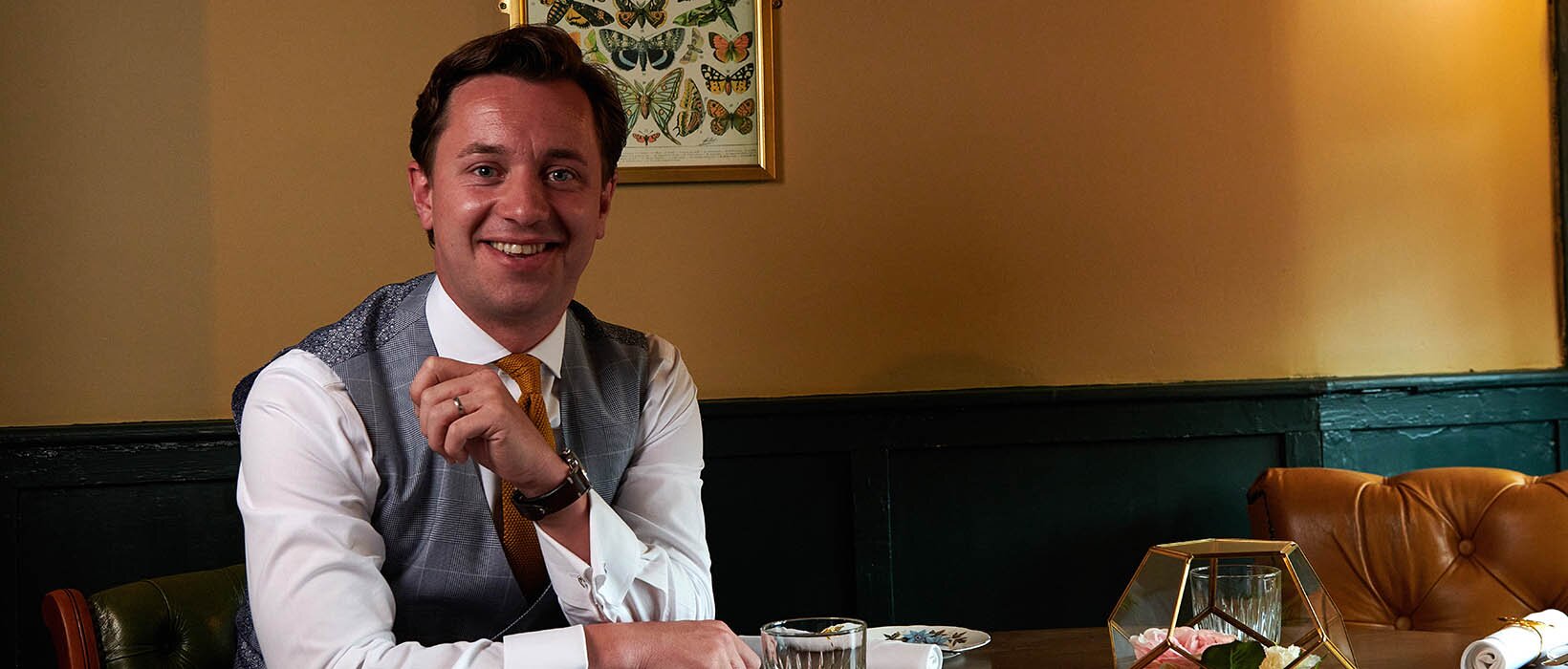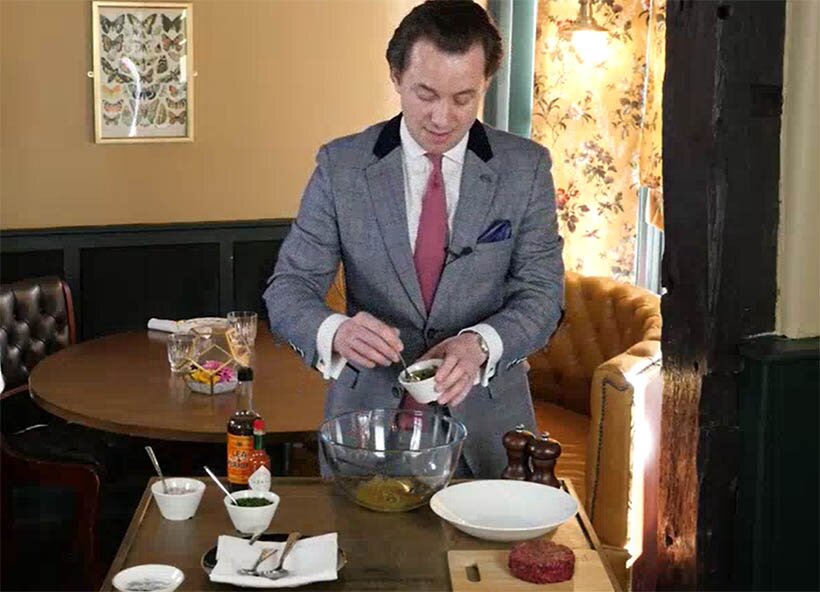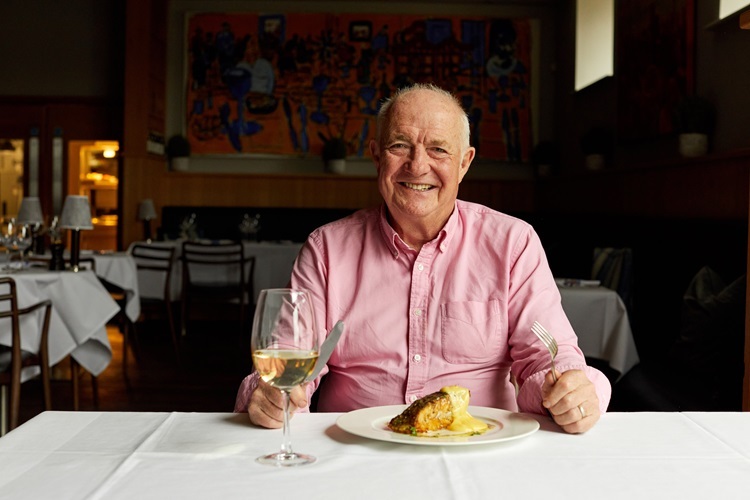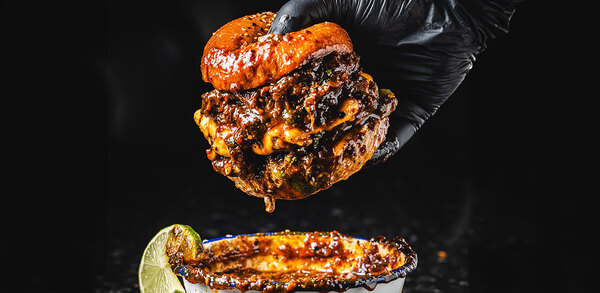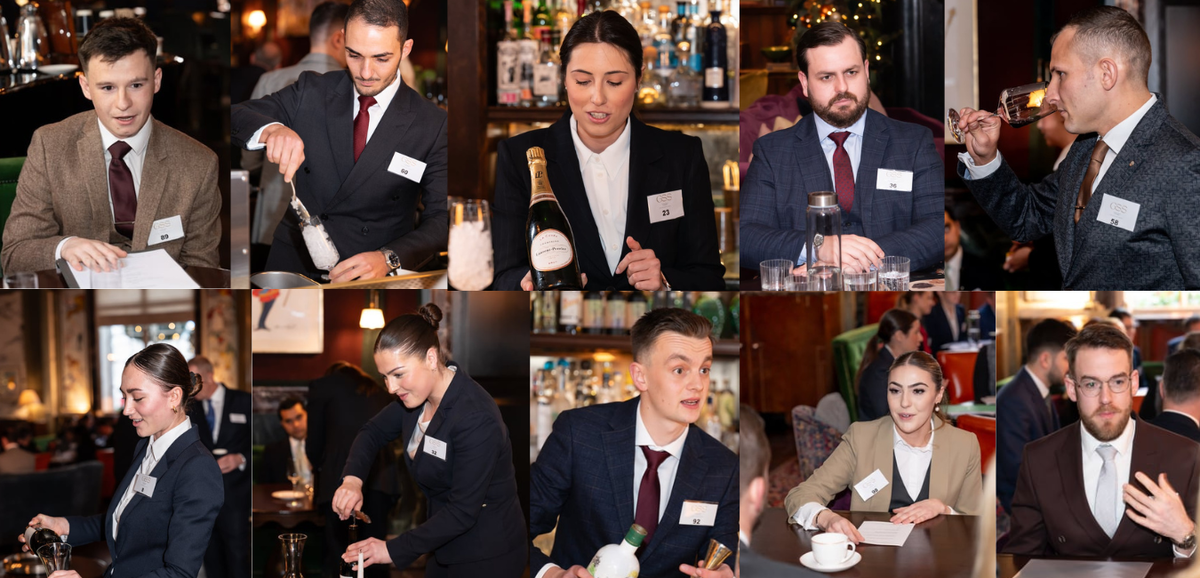How to prepare a steak tartare
To mark its 10th anniversary, the Gold Service Scholarship has produced a series of masterclasses in essential hospitality skills. Here, Daniel Crump explains how to prepare steak tartare tableside
Steak tartare is a French delicacy of raw beef bound together with egg yolk and many different condiments. There’s a lot of history to the dish: we know that it dates back to the 13th century, and at the Greyhound we serve it in quite a traditional style.
Mise en place
Obviously the beef is very important. There are two ways to prepare it: you can mince it or cut it. Here at the Greyhound our chefs use the more traditional method of cutting the beef.
Tableside you will need a plate with two starter forks, two dessertspoons and two teaspoons. It’s important to have these resting on a pocket napkin, because as you use them and they become dirty, you will want to put them out of sight.
When arranging your condiments make sure the tallest are at the back so they do not obstruct your guest’s view. Similarly, we use a glass pyrex bowl to prepare the tartare so the guest can see what is happening.
At the Greyhound all this will be arranged on a classic butler’s tray. When preparing the dish tableside during service, I would make sure to have another waiter nearby who I can pass dirty ramekins or spoons to.
Communication
Lots of guests have different preferences when it comes to the preparation of steak tartare, so it’s really important that you communicate with them throughout.
I would first showcase the beef to the guest and explain that, in our case, it’s 28-day aged beef fillet from the Highlands.
Throughout the preparation I would explain what I’m adding and learn about the guest’s preferences, adapting quantities to them.
Preparing the tartare
We start with a teaspoon of Dijon mustard, which is nice and traditional. I then add salt and pepper, remembering that it’s easy to add more but not to take away.
Worcester sauce follows – just a little bit – and then add some egg yolk to the bowl and give it a good mix. It’s important to get the consistency right – you don’t want it too liquid.
At this point I would also ask the guest if they would like Tabasco, and if so I would add that. Then we slowly add olive oil, whisking with a fork until you have a smooth consistency, with everything well integrated.
Then I will add the gherkins, again asking the guest how much they would like, before adding parsley and chopped shallots.
I mix this all together and then it is time to add the beef. Just before you do so, try to move the sauce to one side of the bowl to minimise the risk of it splashing you.
I use two forks to break up the beef and ensure every part is covered with the sauce. Obviously, you cannot taste in front of your guest in the dining room, but we want to make sure it’s perfect for them. So, we place a tiny amount on a little dish with a little spoon and offer it for them to try.
If they approve, I use two forks to mould the beef together, almost like a burger. Then I take my two spoons and stack it, so it’s tall as opposed to wide, shaping it beautifully before placing it on the bowl or plate. If it sticks together fantastic, if not, do it bit by bit, piling it nice and tall. Then, shape it with your spoons on the plate or bowl (see inset) and firm it down before presenting to the guest.
Watch all of the series
Daniel Crump is the owner of the Greyhound in Beaconsfield, Buckinghamshire. You can view the rest of the masterclass videos at thegoldservicescholarship.co.uk/masterclass-videos/



